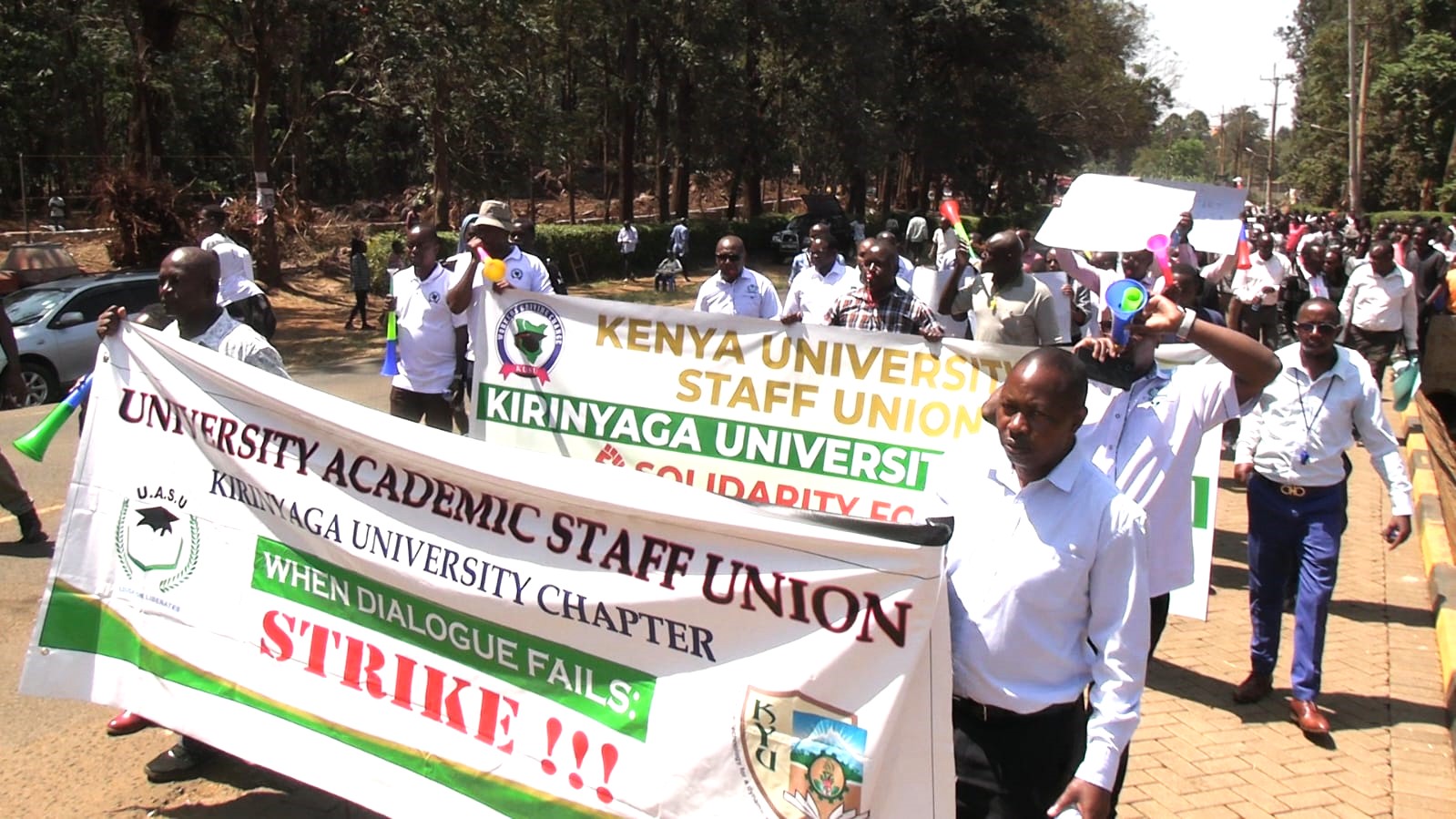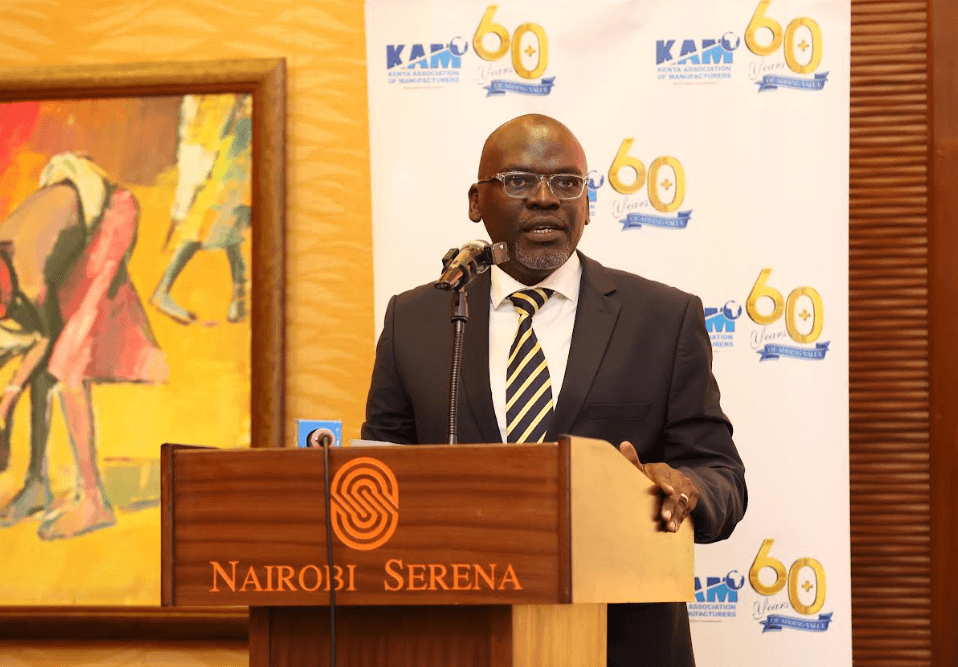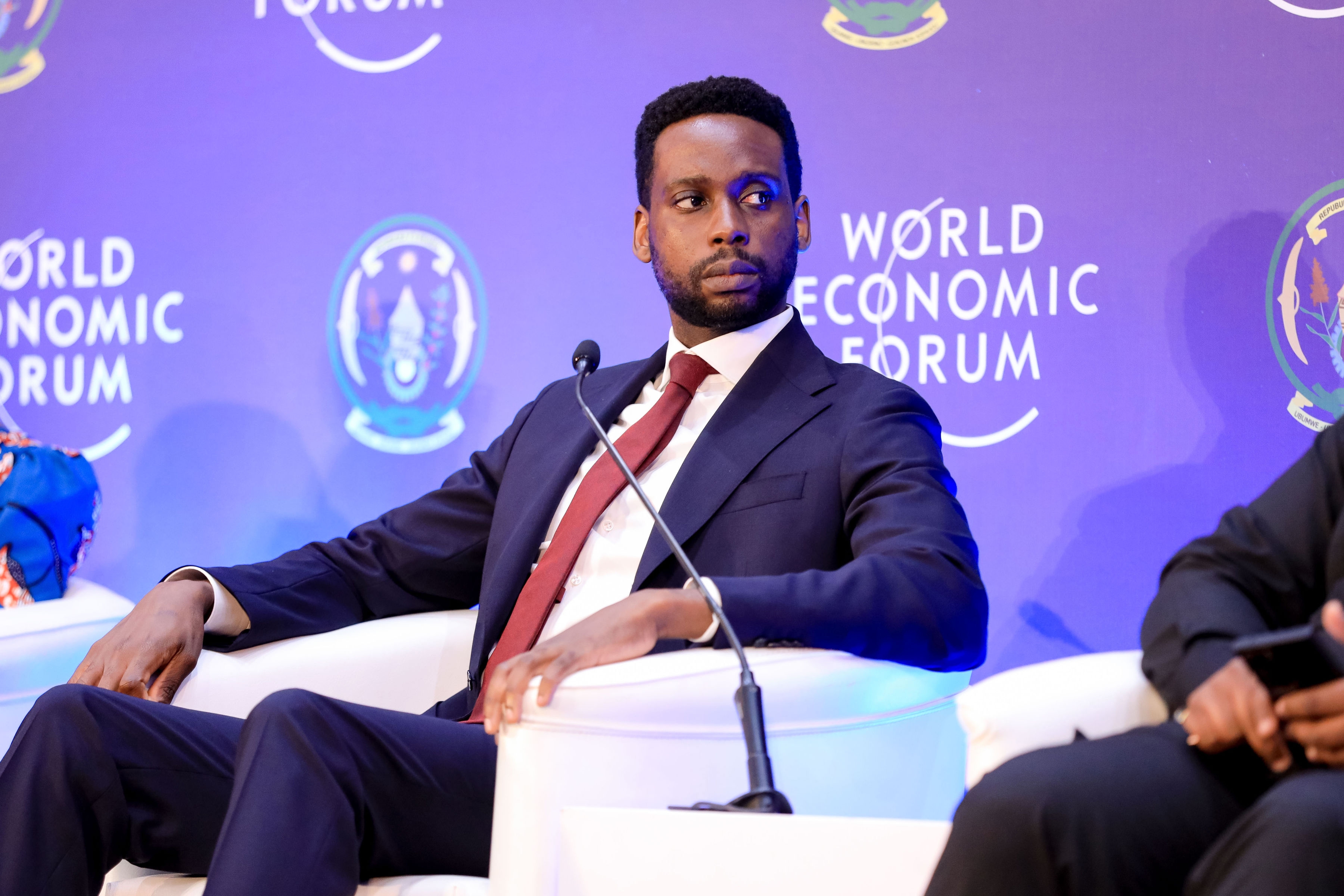

The nationwide strike by university lecturers intensified on Thursday as more institutions joined the industrial action.
The strike has crippled learning in public universities and exposed deep financial and policy rifts between the government and academic staff.
Campuses were deserted on Wednesday and Thursday, with lecturers absent and no official communication provided to students.
Dons at the troubled Moi University joined colleagues from the University of Nairobi, Technical University of Mombasa and Kirinyaga University, which had started the action on September 17, demanding billions in salary arrears and the conclusion of long-overdue collective bargaining agreements.
Institutions such as Egerton and Maseno reported a near-total halt in academic activity.
The strike, jointly called by the Universities Academic Staff Union and the Kenya University Staff Union, centres on three demands: the release of Sh2.73 billion for Phase Two of the 2021–2025 CBA, payment of Sh7.9 billion outstanding from the 2017–2021 CBA and negotiation and registration of a new CBA covering 2025–2029.
The industrial action comes just weeks after the resumption of the 2025/26 academic year, throwing hundreds of thousands of students into uncertainty.
Uasu secretary general Constantine Wesonga, announcing the strike effective midnight of September 17, criticised the Salaries and Remuneration Commission for what he termed a blatant disregard of a 2021 Labour Court order.
The order had directed the National Treasury to enhance budgetary allocations to enable universities to honour the CBAs.
In Eldoret, Uasu Moi University chapter declared its full support for the strike.
Branch secretary Busolo Wekesa said the university had failed to pay a single cent under the 2021–2025 CBA and continued to withhold arrears from the previous CBA.
“This is not new money; it was promised and is long overdue,” Wekesa said.
“Some universities have paid, but Moi University has not. Payment must be made now.”
Wekesa also decried the lack of medical cover for staff over the past four months, stating that the failure had already resulted in fatalities.
The union accused the university of diverting funds meant for salaries despite disbursements from the national government.
Meanwhile, Education CS Julius Ogamba announced on Wednesday that the National Treasury had released Sh2.5 billion to implement the second phase of the 2021–2025 CBA.
He called on lecturers to suspend the strike and allow time for funds to reflect in accounts.
“We appeal to our lecturers to suspend the strike and allow ongoing efforts to conclude so that learning is not disrupted,” Ogamba said.
However, union leaders rejected the appeal, branding the disbursement “hot air” and demanding action over assurances.
“The government only listens to strikes,” Uasu trustee Jane Michael said.
“Once it begins, we no longer entertain promissory notes.”
She reiterated that negotiations without counter-offers or clear timelines were meaningless and restated the union’s key demands: full settlement of the two CBAs and initiation of talks for the 2025–2029 agreement.
Moi University chapter chair Richard Okero added that the government's continued underfunding of universities was unsustainable.
“We admit over 150,000 students every year. Without serious investment, the system will collapse under the weight of corruption and misplaced priorities,” he warned.
The strike has also revived scrutiny of the SRC’s role in budgetary delays.
Despite court rulings directing it to collaborate with the Ministry of Education, the Inter-Public Universities’ Councils Consultative Forum and Treasury to provide for CBAs, union officials say the SRC has remained non-committal.
The lecturers’ action follows the collapse of crisis talks that had briefly ended a three-week boycott at Moi University.
Uasu said lecturers returned to class in good faith, expecting concrete progress—none of which materialised.


















